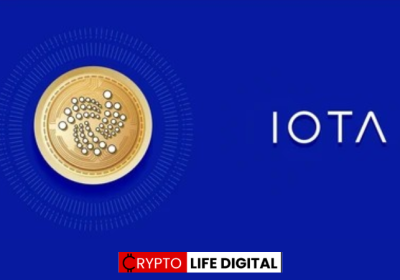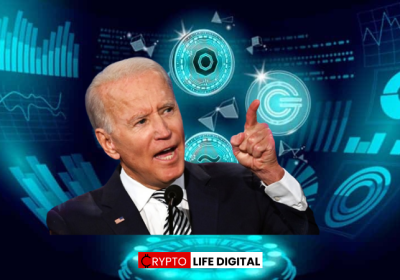The Potential Of Cryptocurrency For Financial Inclusion

Cryptocurrency has the potential to address some of the challenges of financial inclusion. It offers a decentralized and secure method of conducting transactions that do not require a centralized authority, such as a bank, to verify and process transactions. This means that anyone with an internet connection can participate in the cryptocurrency ecosystem and access financial services.
Cryptocurrency is a digital or virtual currency that uses cryptography for security and operates independently of a central bank. It has gained significant popularity in recent years and has the potential to revolutionize the financial industry, particularly in terms of financial inclusion. Financial inclusion refers to the availability and accessibility of financial services to all individuals and businesses, including those who are currently unbanked or underbanked. In this article, we will discuss the potential of cryptocurrency for financial inclusion and the challenges that need to be addressed to make it a reality.
The Challenge of Financial Inclusion
The lack of access to financial services is a significant challenge that affects millions of people worldwide. According to the World Bank, about 1.7 billion adults worldwide are unbanked, meaning they do not have access to a bank account or other financial services. The reasons for this can vary, but they are often due to factors such as a lack of infrastructure, high costs, or the perception that financial services are not accessible to them.
Read Also: Deaton Predicts Another Date For The Termination Of The Battle Between Ripple And SEC.
The lack of access to financial services can have a significant impact on individuals and communities. It can prevent them from saving money, accessing credit, or participating in the formal economy. This can limit their opportunities for growth and economic advancement, particularly in developing countries.
The Potential of Cryptocurrency for Financial Inclusion
One of the most significant advantages of cryptocurrency is its low transaction costs. Traditional financial services, such as banks and remittance services, often charge high fees for international transactions or money transfers. Cryptocurrency transactions, on the other hand, are typically much cheaper and can be conducted in real time.
Cryptocurrency can also enable microtransactions, which can be particularly useful for individuals who need to make small transactions regularly. For example, in developing countries, small farmers may need to make regular payments for supplies or equipment. Cryptocurrency can enable them to do this cost-effectively and securely, without the need for a traditional bank account.
Another potential advantage of cryptocurrency for financial inclusion is its accessibility. Many people who are currently unbanked or underbanked may not have access to traditional financial services due to a lack of infrastructure or geographic isolation. Cryptocurrency, however, can be accessed from anywhere with an internet connection, making it an ideal solution for people living in remote areas.
Read Also: Terraport’s First-ever LUNC Burn Accounts For 100M Terra classic
Challenges of Cryptocurrency for Financial Inclusion
While cryptocurrency offers many potential benefits for financial inclusion, several challenges need to be addressed. One of the most significant challenges is the lack of awareness and understanding of cryptocurrency among many people, particularly in developing countries. Many people may not understand how cryptocurrency works, or they may be hesitant to use it due to concerns about security or volatility.
Another significant challenge is the lack of regulatory clarity around cryptocurrency. Many governments have not yet developed clear regulations around cryptocurrency, which can make it difficult for businesses and individuals to participate in the ecosystem. This can also create uncertainty and make it challenging for cryptocurrency to gain widespread adoption.
The lack of infrastructure is another challenge for cryptocurrency in terms of financial inclusion. While cryptocurrency can be accessed from anywhere with an internet connection, many people in developing countries do not have access to reliable internet or electricity. This can make it difficult for them to participate in the cryptocurrency ecosystem.
Finally, cryptocurrency is not yet widely accepted as a payment method by many businesses, particularly in developing countries. This means that even if people have access to cryptocurrency, they may not be able to use it to purchase goods and services.
Cryptocurrency has the potential to revolutionize the financial industry, particularly in terms of financial inclusion. It offers a decentralized, low-cost, and accessible method of conducting transactions that can enable individuals and businesses to access financial services that were previously out of reach.
However, to realize the potential of cryptocurrency for financial inclusion, several challenges need to be addressed. These include increasing awareness and understanding of cryptocurrency, developing clear regulations, improving infrastructure, and increasing acceptance of cryptocurrency as a payment method.
Despite these challenges, many organizations and governments are working to promote cryptocurrency as a tool for financial inclusion. For example, the United Nations Development Program (UNDP) has launched a blockchain-based platform to help refugees access financial services. The platform enables refugees to receive and spend money using cryptocurrency, which can help them to access necessities and participate in the economy.
In conclusion, cryptocurrency has the potential to be a powerful tool for financial inclusion, particularly in developing countries where traditional financial services may be limited. While there are still challenges to be addressed, the increasing adoption and use of cryptocurrency suggest that it may play an increasingly important role in promoting financial inclusion and economic development in the years to come.
Follow us on Twitter, Facebook, Telegram, and Google News

Dr. Olajide Samuel juggles the demands of medical studies with a passion for cryptocurrency. A seasoned blogger, Olajide shares his vast global knowledge of the crypto space, offering insights to enthusiasts. Despite his busy schedule, his commitment to crypto remains strong, and he actively seeks ways to contribute to its future.










